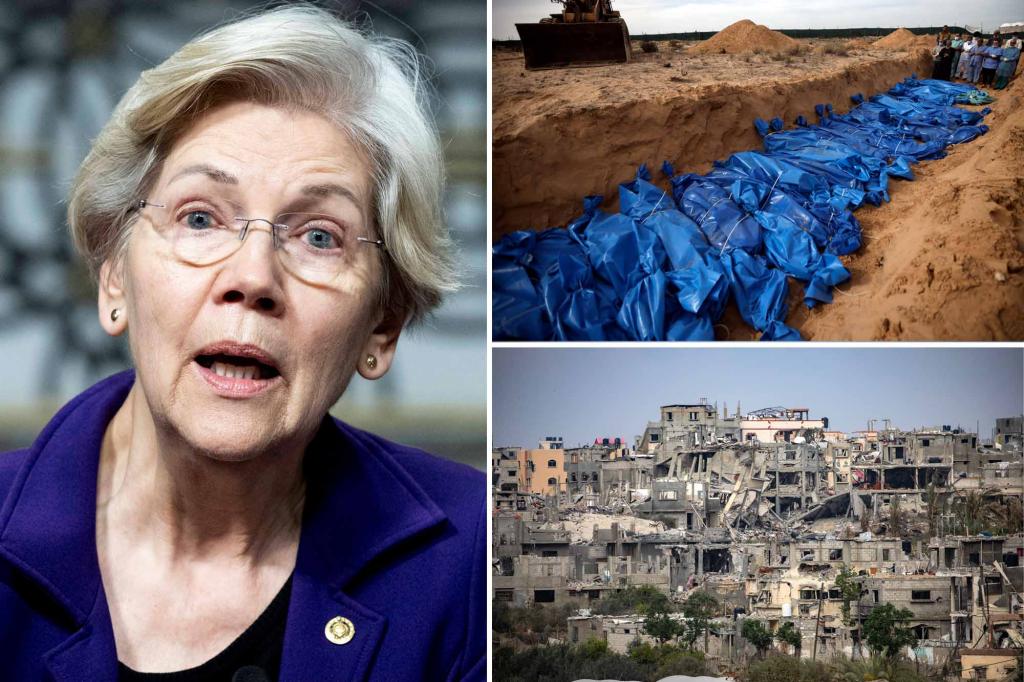Sen. Elizabeth Warren recently expressed her belief that Israel is committing genocide in Gaza, citing the Israeli military’s actions such as starving children and dropping bombs in civilian areas. Warren stated that it is more important to focus on the moral wrongfulness of Israel’s behavior rather than the legal definition of genocide, although she acknowledged that there is ample evidence to classify it as such. She emphasized the need to look at the actions on the ground rather than getting caught up in labels.
Initially, Warren faced criticism from anti-Israel groups for her support of Israel following attacks on the country. However, she began to backtrack on her stance in January, citing concerns over the Israeli government’s treatment of Palestinians. Warren has called for a cease-fire in Gaza and has expressed opposition to the sale of US fighter jets to Israel after the deaths of aid workers in an Israeli airstrike. She believes that Congress has a responsibility to act and prevent the sale of arms to a country that violates humanitarian relief laws.
Amidst ongoing conflict, Israel has vowed to continue its fight against Hamas until the terror group is eliminated and hostages are freed. The Gaza Health Ministry, run by Hamas, claims that over 33,000 Palestinians have been killed since the war began, without distinguishing between terrorist and civilian deaths. Warren’s evolving stance on the Israel-Gaza conflict reflects growing concerns over Israel’s military actions and the need for accountability in addressing humanitarian crises.
Warren’s statements about Israel’s actions in Gaza have sparked a debate about the level of violence and its impact on civilians in the region. Some view her comments as a necessary critique of Israeli policies, while others argue that it is important to consider the security concerns that Israel faces in combating terrorism. The question of genocide in Gaza raises complex legal and moral issues that require careful consideration and nuanced dialogue to address the root causes of the conflict.
As the international community grapples with the ongoing crisis in Gaza, Warren’s advocacy for accountability and human rights reflects broader calls for justice and peace in the region. The humanitarian toll of the conflict underscores the urgency of finding lasting solutions that prioritize the safety and well-being of all civilians affected by the violence. Warren’s stance on Israel’s actions in Gaza highlights the complexities of navigating political, legal, and ethical considerations in the pursuit of a just and equitable resolution to the long-standing conflict.
In conclusion, Sen. Elizabeth Warren’s statements on Israel’s actions in Gaza shed light on the moral and legal challenges associated with conflicts in the region. Her advocacy for human rights and accountability reflects a broader global conversation about the need for justice and peace in conflict zones. The ongoing violence in Gaza underscores the urgent need for diplomatic efforts to address the underlying causes of the conflict and prioritize the safety and well-being of civilians. Warren’s evolving stance on the Israel-Gaza conflict highlights the complexities of navigating political, legal, and ethical considerations in pursuit of long-lasting peace and security for all parties involved.


